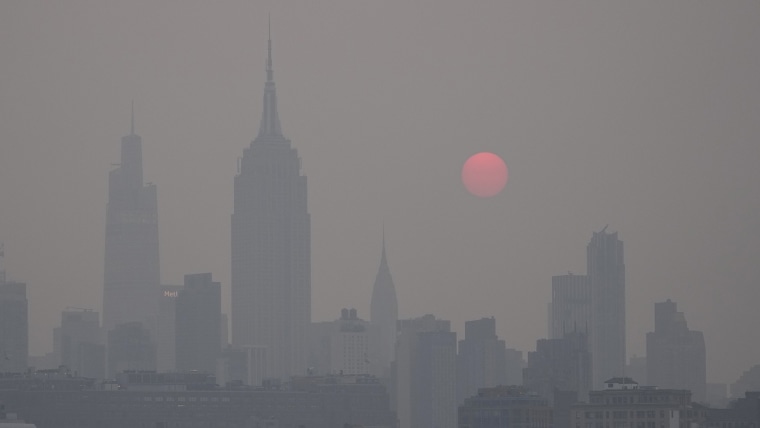🎯 Historical Quote:
"If you want a picture of the future, imagine a boot stamping on a human face—forever."
— George Orwell, 1984
This line captures the creeping authoritarianism behind forcing ideological loyalty in exchange for a visa. What was once dystopian fiction is becoming bureaucratic policy.
US halts student visa appointments and plans more social media vetting | BBC News
"Land of the Free—But Not for You: The U.S. Now Screens Student Visas for 'Anti-American Thought'"
By, adaptationguide.com | June 2025
“When tyranny comes, it will be wrapped in the American flag and carrying a security clearance.”
Welcome to the United States of Surveillance. As of next Monday, foreign students and exchange visitors applying for visas to study, train, or participate in cultural exchange in the U.S. will face a new requirement: make all your social media profiles public so U.S. authorities can scour them for "anti-American" content.
This isn’t a fringe conspiracy theory. It’s a policy directive straight from the U.S. State Department, sent via internal telegram to American embassies and consulates across the globe.
The requirement applies to all applicants under the F, M, and J visa categories—students, vocational trainees, and cultural exchange participants.
You read that right. If you're a teenager from Berlin who reposted a Gaza ceasefire meme, or a university student from Nigeria who shared a critical article about U.S. foreign policy?
You're now a potential national security threat.
Thoughtcrime Is Now Border Policy
According to the State Department cable—leaked and reported by multiple U.S. media outlets—consular officials are instructed to examine whether visa applicants have expressed:
-
“Hostile attitudes toward our citizens, culture, government, institutions, or founding principles”
-
Support for “specific foreign terrorist groups or other threats to U.S. national security”
-
Engagement in “unlawful antisemitic harassment or violence”
But here's the kicker: there are no legal definitions attached.
What counts as “hostile”? What counts as support? Who decides?
This is not counterterrorism. This is ideology screening. And ideology screening is a tool of authoritarian regimes, not democracies.
Screenshots for the Homeland
The new guidelines go further. U.S. visa officers are now ordered to:
“Make detailed records and screenshots of online profiles to preserve evidence in case of future deletions or data loss.”
This is digital profiling. Every post, every like, every share—archived in U.S. government systems.
Your political past is now a border control variable. Your opinions are evidence. If your ideas change, or you delete them, it doesn’t matter.
They’ve already been saved. You’ve already been judged.
And don’t think it ends there.
Applicants who’ve been “politically active in the past” are now flagged.
Officers are expected to evaluate the “likelihood they will continue these activities” while in the U.S.
What does that mean? Protest? Student activism? Just caring about global issues?
You’re now a suspect.
Trump’s Long Shadow
This surveillance doctrine isn’t happening in a vacuum. It’s the direct fallout from Trump-era policies now being reanimated under the banner of "security" and "antisemitism prevention." Just last month, the U.S. government froze all student visa appointments as part of a pressure campaign against American universities deemed “soft on antisemitism” due to their handling of pro-Palestinian student protests.
Translation? Dissent is being rebranded as danger.
Foreign students—especially Arabs, Muslims, critics of Israeli policy, or anti-war activists—are being systematically criminalized, often without charges, just for participating in constitutionally protected protest. Several international students were already arrested or deported for alleged support of Hamas, after simply showing solidarity with Palestinian civilians.
This Is the Rubicon
Let’s be brutally honest. The United States now demands ideological loyalty from international students before they even step foot in the country. It is no longer enough to respect U.S. law—you must align yourself with U.S. policy, culture, and political narratives. Or else.
This isn't about stopping terrorism.
This is about censorship at the border. It’s about manufacturing ideological purity. And it’s about making the U.S. a place where only obedient minds are welcome.
So we must ask:
-
Is it still worth going to the United States to study?
-
Is the academic freedom offered there still real if it begins with surveillance?
-
And most importantly, when is the Rubicon crossed?
Because if you're a student today being told to sanitize your past for a visa, what happens tomorrow, when you're asked to report on others just to stay enrolled?
Global Education Should Be Free—Not Free If You Agree
There was a time when studying in the U.S. meant joining a bastion of free thought, open debate, and scientific innovation. Today, it feels more like crossing into a securitized experiment in digital thought control.
To every brilliant young person considering a student visa: you are not the threat.
But the system that demands your conformity before granting you entry?
That is.
What You Can Do:
-
Speak out: Use your platform to demand transparency and resist ideological screenings.
-
Push your governments and universities to confront U.S. overreach in global education policy.
-
Choose other destinations: Germany, the Netherlands, Canada, and others offer top-tier programs without demanding political compliance.
-
Support legal challenges: Several civil liberties organizations are preparing to fight this in court. Help fund or amplify them.
Because if education becomes a tool of coercion, it’s no longer education. It’s indoctrination.
🛑 You don’t have to cross the ocean to cross a line. But when a nation makes you betray your beliefs to get a visa, maybe it’s time to ask:
Is America still worth visiting for the next 3½ years?
📌 Related:
Want more like this? Follow Adaptationguide.com —
where the collapse gets documented, decoded, and resisted.
yours truly,


No comments:
Post a Comment